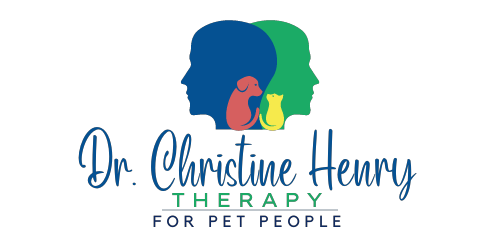Does your experience qualify as trauma and what does that mean for you?
For something to be considered traumatic it does not have to a single huge event. Rather, smaller, longer lasting, or repeated stressful events can also be considered traumatic. We call this type of trauma Complex PTSD (Post Traumatic Stress Disorder).
Examples of chronic stressful events that could lead to trauma:
People not respecting your boundaries. This can be physical or emotional.
Having a parent treat you like a peer and coming to you for emotional support. They often tell you things that kids are not meant to hear.
When you were upset there was no one there to comfort you. You have trained yourself to keep your emotions to yourself.
Your basic needs were met (Food, water, shelter) however, they were not consistent or up to the standards of your peers. At times the power or water got shut off. Parents were always concerned about not having enough money. You may have moved multiple times due to a parent changing jobs often.
One or both parents were very self focused. What they wanted or needed mattered most.
There was workaholism, substance abuse, eating disorders, depression or anxiety in the home.
There were constant fights within the family. Verbal or physical fights between parents, between parents and a sibling, or even fights with you. If you were not included in the fights being around them was scary enough.
Your family was very image focused. They overly cared what others thought of them and you. You constantly felt that you were a disappointment and never good enough. At times even being told this by your parents.
Overly permissive house with no consistent rules. You basically took care of yourself with little supervision.
Grew up in an overly controlling environment. Strict rules that were always enforced with no flexibility.
Because there is not a huge single event it is often hard for people to realize that what they experienced was in fact considered trauma. Complex PTSD is the stacking up of these events together over a long period of time elicits a trauma response similar to that of PTSD.
The Impact Of Complex PTSD
Find it hard to trust and be emotionally open with people.
Growing up the only person that you could rely on was yourself. When you have tried to trust people it never seems to turn out well. It feels safer to turn to animals for comfort and support.
You go back and forth between disliking your parents and feeling that they did the best they could.
You know parts of how you were raised were not right. You saw your friends families behaving differently toward their children. However, given that your parents were abused or neglected growing up, you feel that they did well given the circumstances.
You neglect your own needs.
Overtime you lose sight of who you are since you have been so focused on what everyone else wants that you don’t even know who the real you is anymore.
You push down your emotions but also feel them deeply.
You have been stuffing your emotions down so long at times you forget that you are having them. Unfortunately this only works for so long and your emotions go from zero to 100.
Pay close attention to the environment around you.
You are very perceptive of the environment and this has helped you feel a sense of safety in knowing what’s coming. You are connected to the emotions of others and often realize they are upset even before they are recognize it themselves. This alertness of others feelings helps you to plan you own responses around them accordingly. If they are angry you are extra nice to attempt to prevent them from blowing up on you.
It’s always your fault.
It feels so uncomfortable when people around you are angry, sad, scared, or in pain. When people are upset you often feel that it is your fault even when you can’t figure out what you may have done to upset them.
It feels emotionally painful when people are mad at you.
When people do not text you back immediately or cancel plans your first thought is that they are mad at you. You ruminate over your past interactions with them and come up with reasons for why they dislike or are angry at you.
Have physical symptoms.
Besides the emotional impact, experiencing chronic stress can also give you physical symptoms such as migraines, irritable bowel, autoimmune disease, gluten intolerance, thyroid issues, or hormone imbalance.
Trauma Informed Care Will Help You….
Fully process your past so you can start to live in the present.
Learn to feel your feelings without being overwhelmed by them.
Begin to accept that you are good enough.
Know who YOU are and what YOU want.
Start to believe that what you want matters too.
Set boundaries with others.
Learn how to be emotionally open and trust others.
Feel connected to people and have a sense of belonging
Feel content with your life and have more hope for your future.
Start Your Journey to Healing
Contact me for a Free 20-minute Consultation to see how I can help. (No phone call needed).
FAQ
-
While research in trauma therapy suggests that weekly sessions are optimal, I understand that for some, this frequency can be overwhelming. I am flexible and have found that significant progress can still be made with therapy sessions held at least every other week. However, there are instances where weekly therapy is essential.
-
While I do not specifically use those modalities there are elements of them in the work I do. My therapeutic approach is an integration of attachment theory, polyvagal theory, narrative therapy, psychodynamic principles, and interpersonal neurobiology. Additionally, I may sprinkle some pieces of cognitive-behavioral therapy to provide a tailored approach to your unique needs.
-
Sorry, I only offer virtual therapy at this time.
-
My support groups mostly consists of my past or current clients. However, if you already have an individual therapist, I'm more than willing to meet with them, along with you, to assess whether either group would be suitable for your needs.
Learn More
Visit our Resources pages to learn more about trauma, mental health, and how neurodivergence changes how you experience trauma.








